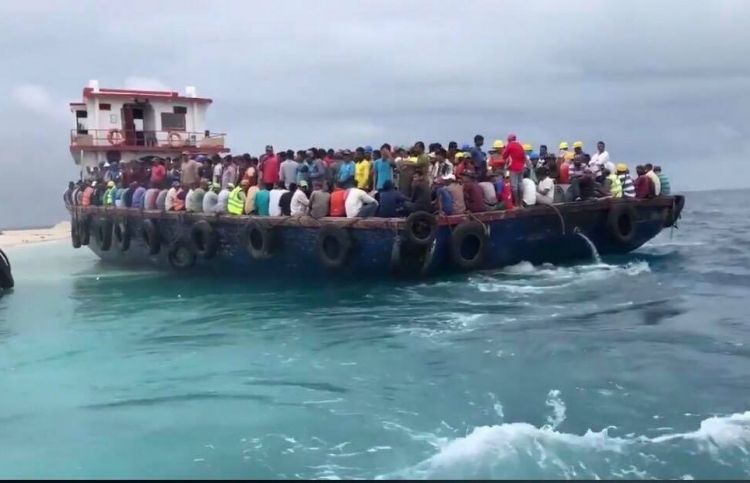Human rights watchdog laments treatment of migrant workers
There was outrage after hundreds of migrant workers were illegally ferried to work.

06 Oct 2018, 09:00
The Human Rights Commission lamented Thursday the mistreatment and unsuitable living conditions of migrant workers in the Maldives.
HRCM vice president Mohamed Zahid urged employers to “believe that they are also humans” at a ceremony held to launch an information card for expatriates.
The card explains worker’s rights in three languages and provides the number of a hotline to report cases of human trafficking, withholding of payment, termination without notice, discrimination or unlawful arrest.
Zahid conceded that the HRCM needs to do more to protect migrant worker’s rights, but blamed lack of resources.
Become a member
Get full access to our archive and personalise your experience.
Already a member?
Discussion
No comments yet. Be the first to share your thoughts!
No comments yet. Be the first to join the conversation!
Join the Conversation
Sign in to share your thoughts under an alias and take part in the discussion. Independent journalism thrives on open, respectful debate — your voice matters.




